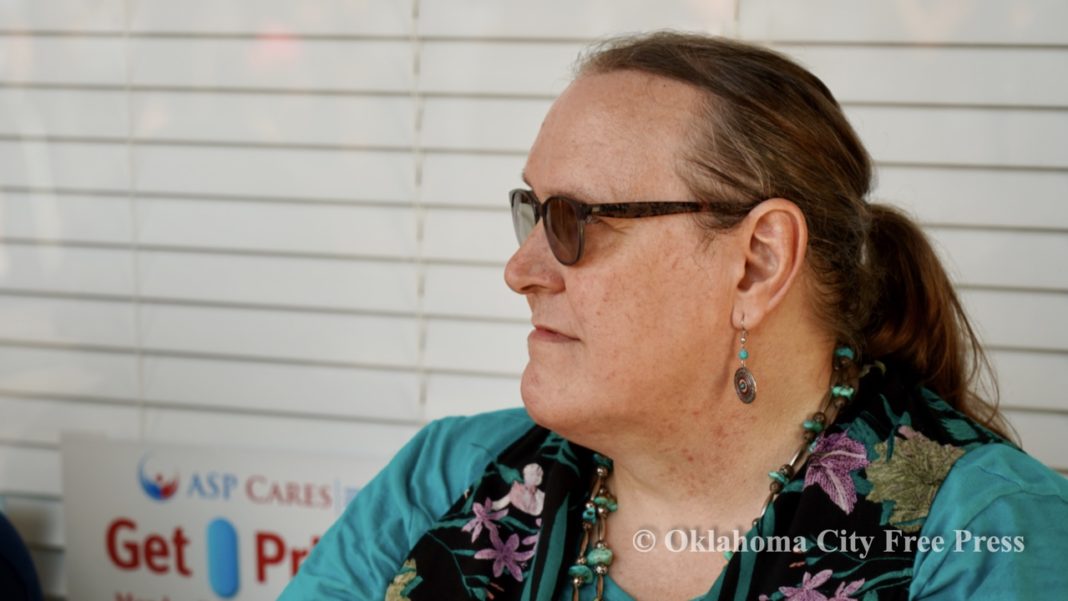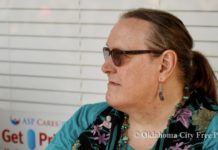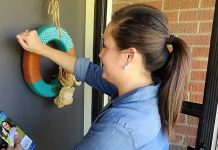Last Updated on January 5, 2024, 12:56 AM | Published: August 13, 2021
Paula Sophia Schonauer, LCSW, continues a serial memoir. If you haven’t read the earlier parts of this series, follow the links at the bottom of this page.
“The true purpose of the strong is to promote greater strength in the weak, and not to keep the weak in that state where they are at the mercy of the strong.”
Christian D. Larson
One thing I loved when I was a kid was riding a bicycle, a blue Schwinn Stingray cruiser with coaster brakes, and a banana seat. As soon as I could balance on two wheels, I’d go as fast as I could, stand on the pedals, and touch the handlebars with my fingertips as light as I could manage while maintaining control. I looked straight ahead, imagining I could fly, feeling the breeze, watching the world whirring by in my peripheral vision. It was total freedom, release from the things that oppressed my daily existence.
I was flying one sunny day in June 1976, daring myself to let go of the handlebars to see if I could balance myself, lift my arms, and really glide. I almost did it, but instead of standing straight up, I remained hunched over the handlebars, afraid to be too far from safety. This was my undoing, causing my bicycle to be front heavy, and when I ran over a bump on the street, a hole recently filled with tar, I pitched forward. The front wheel turned sharp to the right, slamming the handlebar grip into my abdomen just below my rib cage. I also fell off the pedals, feet causing a sudden stop. As I stumbled forward, the pedals banged against the back of my legs, shortening my steps and keeping me from regaining balance. I fell on my left side, momentum skidding me across the hot summer asphalt.
Dazed from the impact, light and tears filled my eyes, sounds muffled and distant. I felt submerged in a netherworld of numbness, almost pleasant but short-lived. The world came rushing in on the tails of laughter, and with the laughter came pain and confusion, embarrassment. I gulped the air, breathless from the fall. I wasn’t crying, but tears streamed down my face, or maybe sweat. I couldn’t tell. However, the laughter I had heard was my primary concern. It seemed familiar.
To my dread, I had crashed in front of that Tommy kid, the blond-haired bully who had punched me the day I went to the hospital. He strode over to me, grabbed a handlebar grip, and pulled my bicycle away from me, leaving me lying on the pavement. He expressed no concern for my welfare and offered no assistance.
“You don’t know how to ride a bike,” he said. “So, I’m going to impound it.”
“What’s that mean?”
“Ask your dad.”
The handlebars had twisted out of alignment, and I noticed a tear on one side of the banana seat. Tommy might have jumped on the bicycle to ride away, but he stopped to straighten the handlebars, giving me time to jump to my feet.
I didn’t even think about it, leaping toward him, determined to keep him from stealing my bicycle, my only source of freedom. His eyes widened as I closed the distance, and I slammed into him, shoulder to shoulder, knocking him off balance. He let go of the bicycle and stumbled backward, giving me time to seize it. I started walking away with the bicycle, pushing it with the back of the sissy bar, when Tommy grabbed me from behind in a headlock, choking me, and swinging me to the side. I heard the bicycle fall to the ground, chain clanging against the chain guard, chrome fenders against asphalt.
“You need to stop that!” a voice boomed out of nowhere.
It sounded like an adult voice, but I couldn’t see who it belonged to because my face had been pinned against Tommy’s side. He clamped down further, cutting my airway even further. I couldn’t talk. I couldn’t breathe. An edge of black encircled my field of vision, and it seemed to widen, swelling toward the middle. I panicked, stirring a strength I didn’t know I had. I lifted Tommy’s leg and pushed him backward. He fell, releasing his grasp around my neck. I landed on his stomach, knocking the wind out of him, but he still had my head, clamping my left ear with his elbow and pulling my chin with his hand. I thought about biting his fingers when I felt two strong hands grasp me around the waist, pulling me away from Tommy, who grabbed my hair in a final bid to inflict as much pain as possible.
“Let go of him, you little thug!”
Tommy released his grasp, rolled away, and jumped to his feet. He lunged toward me, but the defender stepped between us and pushed Tommy back.
“Leave him alone!”
Tommy spit in our direction, raised a hand, and shot his middle finger at the defender, a young man, maybe a high school kid. He had short brown hair and wore blue jeans and an olive drab military jacket with the sleeves cut at the shoulders. He had bulging biceps and a trim waist.
Tommy ran down the street, stopped at a house, and bounded up a short set of stairs to the front porch. He yelled back obscenities before going into the house. It was disturbing to know that one of the junior high kids was a neighbor of mine. I imagined getting beat up for the rest of my life. I lifted my bicycle, arms trembling from adrenalin and exertion, and I began to cry.
“You okay, kid?”
I nodded, afraid to say something because speaking would release a howl. I struggled to straighten my handlebars, but because I was trembling I couldn’t focus my effort well enough to accomplish the task. The scrapes on the handlebars, the crack in one of the rubber grips, the tear in the banana seat, and the chain dislodged from the large sprocket overwhelmed me. The bicycle had been ruined. Then, I howled, despair spilling out of me, months and months of repressed anguish.
“Hey, buddy, don’t cry. We can fix your bike. No problem.”
This isn’t what I had expected. Strangers weren’t nice to me. Well, he wasn’t a total stranger. I had seen him playing in the street with some of the other kids in the neighborhood. He was the quarterback tossing passes to aspiring receivers and running backs. The kids liked him, not only liked him but really respected him.
“I’m Michael,” the guy said. He lifted my bicycle and pushed it up the concrete ramp leading to the driveway beside his house. I walked with him to the detached garage behind the house, a green two-story colonial with a wide front porch. The garage had those old-fashioned hinged doors rather than those rollaway doors on newer houses with attached garages. Michael went into the garage, grabbed a toolbox, and came back.
The door to the garage remained open, and I saw a punching bag hanging from the rafters, a small, head-sized bag hanging from a platform mounted at the top of a steel post. He had some boxing gloves hanging on a nail, a rack of weights near the back of the garage, and a bench press with a bar on top-loaded with two large weights on each side.
Michael straightened my handlebars, fixed my chain, adjusted my back wheel to take the slack from the chain, and even put a piece of duct tape over the tear in my seat.
“It’s not as good as new, but almost,” he said.
I felt a swell of elation, deep gratitude for this guy who had intervened to protect me from Tommy. It might sound funny to admit this, but I was almost in love, already deeply enthralled by his powerful presence contradicted by his gentle nature.
He closed the toolbox and toted it back into the garage. I followed, intrigued by the punching bag. While in there, I jabbed the heavy bag, barely moving it. I punched harder, but the bag only wobbled from the impact.
Michael laughed, expressing amusement, not derision. “So, you want to learn how to box?”
Here are previous segments:
- Manhood, from the inside out — Memoir and Mythology
- Part 2 — Cubby Hole
- Part 3 — Magic Carpet Cocoons
- Part 4 — Snips and Snails and Puppy-Dogs’ Tails
- Part 5 — Mirror
- Part 6 – Deep Water
- Part 7 – Limbo
- Part 8 – Dissociation
- Part 9 – Shame
- Part 10 – Judgement Day
- Part 11 – Inferno
- Part 12 – Haunted
- Part 13 – Did I say that?
- Part 14 – The end times
- Part 15 – Alone again (naturally)
- Part 16 – Welcome to Grey Town
- Part 17 — Stigma
- Part 18 — Turning the other cheek
- Part 19 — Malingering
- Part 20 — Rorschach
- Part 21 – Soft hands
- Part 22 — How real men talk
Guest Columnist Paula Sophia is a licensed clinical social worker in Oklahoma City and a former Oklahoma City Police Officer.







